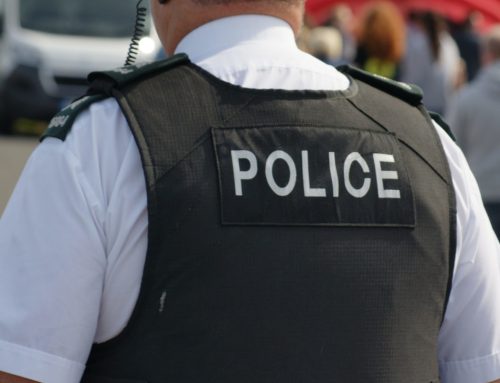Being arrested is one of the most unsettling experiences a person can face. The feeling of being taken into custody, perhaps with little explanation or warning, can leave you confused and anxious. But what if that arrest wasn't just frightening—it was also unlawful? Imagine being taken away without a lawful basis, or having your rights ignored by the very people tasked with upholding the law.
In situations like this, you're left wondering: Can I sue for wrongful arrest? In British Columbia, and throughout Canada, the answer is yes—but there's more to it than simply knowing your rights. Like all legal actions, it depends on several key factors.
What Constitutes a Wrongful Arrest?
Let's start by understanding what a wrongful arrest is. Simply put, a wrongful arrest occurs when a person is taken into custody by law enforcement officers without lawful justification. A police officer must have reasonable grounds to believe that a crime has been committed before they can arrest someone. If they don't, the arrest may be unlawful.
A lawful arrest typically requires either an arrest warrant or, in cases where no warrant is required, the arresting officer must have probable cause. This means the officer must believe, on reasonable grounds, that the person arrested has committed or is about to commit a crime. Reasonable grounds aren't just a hunch; they must be based on solid facts or evidence. If an officer fails to meet this standard, the arrest may be classified as unlawful.
It's also important to note the difference between arrest and detention. While arrest involves taking someone into custody under suspicion of having committed a crime, detention refers to stopping someone for questioning or investigation, without necessarily arresting them with an offence. Detentions that lack legal grounds can also give rise to claims of wrongful arrest or false imprisonment.
Your Constitutional Rights During an Arrest
Under Canadian law, individuals have certain constitutional rights when facing an arrest. Section 10 of the Canadian Charter of Rights and Freedoms guarantees your right to know why you're being arrested and your right to speak with legal counsel without delay. If these rights are violated, or if you've been arbitrarily detained, you may have grounds for a wrongful arrest claim. In such cases, it's crucial to consult a criminal defence lawyer who can assess whether the arresting officers acted outside the scope of their authority.
Can I Sue for Wrongful Arrest?
The short answer is that yes, you can sue law enforcement for unlawful arrests in British Columbia but it is complicated. Most often in Criminal Law a wrongful arrest might lead to a finding that certain evidence was gathered due to that unlawful arrest. That can be a very important result in a criminal case, but it isn't the same thing as suing the police civially for compensation from a wrongful arrest claim. To succeed in a wrongful arrest claim, you need to prove that the arresting officer lacked lawful justification or probable cause.
If you were falsely arrested or detained without reasonable grounds, you may have a valid case. However, not every unlawful arrest automatically leads to compensation. The court will examine whether the officer acted in good faith or made a mistake that any reasonable officer might have made under similar circumstances.
In addition to wrongful arrest, victims may also bring claims for false imprisonment and malicious prosecution. False imprisonment occurs when a person is unlawfully detained or restrained without legal justification, while malicious prosecution involves being wrongfully subjected to criminal proceedings without reasonable grounds.
Elements of a Wrongful Arrest Claim
For a plaintiff to successfully sue the police department for wrongful arrests, several elements need to be present:
- Unlawfulness: The arrest or detention must be unlawful, meaning it occurred without probable cause or any valid warrant.
- Custody or Control: The person must have been taken into custody or otherwise controlled in a manner that prevented them from freely leaving.
- Excessive Force: If police officers use more force than is necessary to arrest individuals, this could be grounds for a claim, especially in cases where excessive force leads to injury.
- Damages: The plaintiff must show that they suffered harm as a result of the arrest, whether through emotional distress, medical bills, loss of employment, or other financial impacts.
Possible Outcomes of a Wrongful Arrest Claims
If you win a wrongful arrest lawsuit, the court may award damages to compensate for the harm you suffered. Damages can include lost income from time spent in jail, legal costs, or medical expenses incurred due to the arrest. The court might also award compensation for emotional distress or reputational harm.
Courts will consider the seriousness of the state's misconduct and the effect of the unlawful arrest on the claimant when determining damages.












